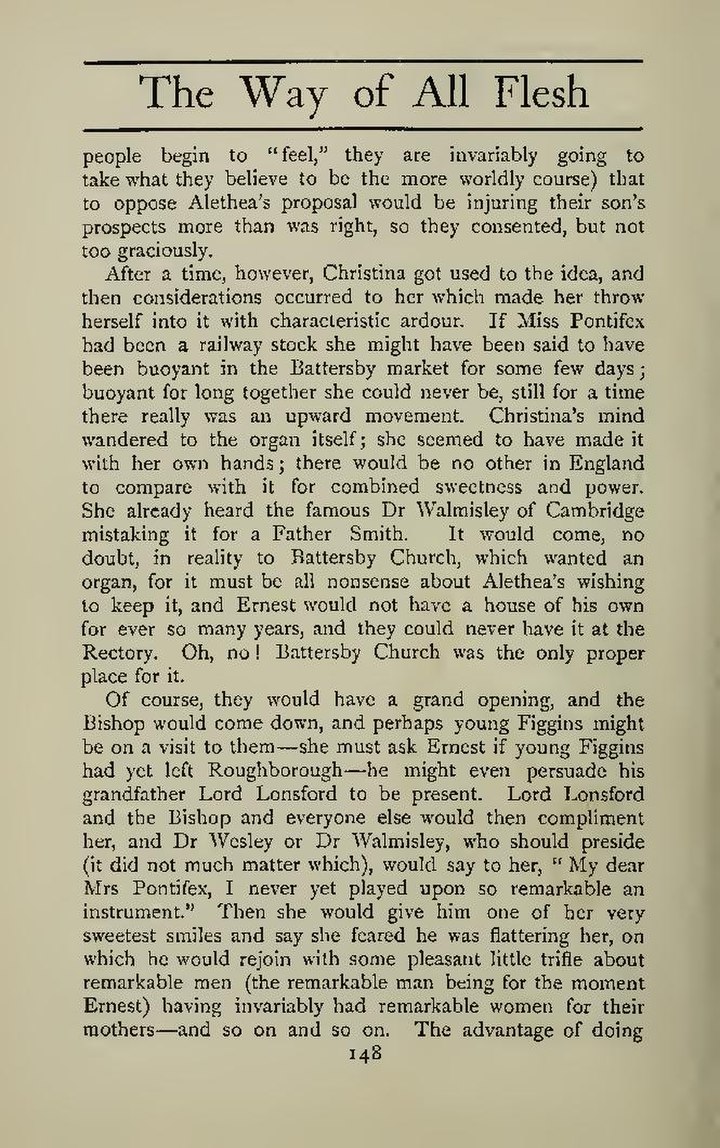The Way of All Flesh
people begin to "feel," they are invariably going to take what they believe to be the more worldly course) that to oppose Alethea's proposal would be injuring their son's prospects more than was right, so they consented, but not too graciously.
After a time, however, Christina got used to the idea, and then considerations occurred to her which made her throw herself into it with characteristic ardour. If Miss Pontifex had been a railway stock she might have been said to have been buoyant in the Battersby market for some few days; buoyant for long together she could never be, still for a time there really was an upward movement. Christina's mind wandered to the organ itself; she seemed to have made it with her own hands; there would be no other in England to compare with it for combined sweetness and power. She already heard the famous Dr Walmisley of Cambridge mistaking it for a Father Smith. It would come, no doubt, in reality to Battersby Church, which wanted an organ, for it must be all nonsense about Alethea's wishing to keep it, and Ernest would not have a house of his own for ever so many years, and they could never have it at the Rectory. Oh, no! Battersby Church was the only proper place for it.
Of course, they would have a grand opening, and the Bishop would come down, and perhaps young Figgins might be on a visit to them—she must ask Ernest if young Figgins had yet left Roughborough—he might even persuade his grandfather Lord Lonsford to be present. Lord Lonsford and the Bishop and everyone else would then compliment her, and Dr Wesley or Dr Walmisley, who should preside (it did not much matter which), would say to her, "My dear Mrs Pontifex, I never yet played upon so remarkable an instrument." Then she would give him one of her very sweetest smiles and say she feared he was flattering her, on which he would rejoin with some pleasant little trifle about remarkable men (the remarkable man being for the moment Ernest) having invariably had remarkable women for their mothers—and so on and so on. The advantage of doing
148
